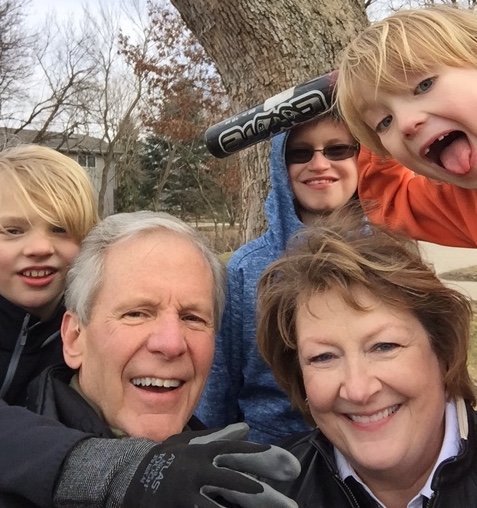Find out what our partners at the Institute for Bible Reading are talking about and visit ImmerseBible.com to learn more about the Immerse Bible Reading Experience. Read Part 5 of the 6 part series by Bible Scholar Glenn Paauw.

Editors Note: From “No Bible” to “Know Bible” is a 6-part series on the path toward great Bible engagement.
What does it mean to receive the Bible on its own terms? Dynamic, living Bible engagement happens when a community:
- has good access to a well-translated text presented in its natural literary forms,
- regularly feasts together on whole literary units understood in context,
- understands the overall story of the Bible as centered in Jesus, and
- accepts the invitation to take up its own role in God’s ongoing drama of restoration through
the power of the Spirit.
When the Scriptures are received on their own terms like this they can once again become God’s speech act—instructing, revealing, convicting, judging, comforting, healing, and saving with all their intended power
Part 5: The Heart of the Matter—The Story of God and Us
We’ve been proposing that there are several steps to reaching the goal of great Bible engagement. Everything from the physical presentation to the reading of whole books, and from experiencing the Bible in community to taking note of the Bible’s various contexts. But here’s the single biggest factor: reading the Bible as the grand adventure God made it to be.
All those books in the Bible come together to narrate the world. In concert, they take us through all those ups and downs—big moves forward and devastating setbacks and losses—to disclose the big shape of the story. We learn the beauty and glory of God’s intention in creation, the failure and darkness of human rebellion, and then the long, slow road back to the redemption and flourishing of God’s entire creation.
There are of course lots and lots of messages, big and small, throughout the Bible. We can learn particular truths about all kinds of things—from the proper worship of God to getting along with our neighbors. But overall, the Bible has one exceedingly great goal: to tell us how things are with God and his world.
More than anything else, the Bible is a story.
This has all kinds of implications.
Jesus was once questioned by an expert in the law about what must be done to gain a share in the world to come. Jesus answered the question with one of his own: “What does the Law of Moses say? How do you read it?”
That indeed is the question for us too: How do you read it?
Jesus is teaching us something crucial about the Scriptures right here. The Bible is not some collection of words that simply jump off the page and communicate by themselves. We have to read and interpret them. And we have to read and interpret them well for them to do their proper work in us. Jesus’ question implies there are options.
Unfortunately, many of our current options for reading and interpreting fail to provide the full and compelling meaning the Bible is offering. Too often the Bible is treated in a piecemeal fashion, as if it were a handy reference book for looking up short, infallible answers to all our questions.
But there’s a better way: big reading leads to big meaning. Because God created our world and always intended to interact with us as significant actors within it, the revelation in the Bible moves along with God’s people. If the Bible wants to enter human history as part of God’s mission to transform that history, then it has no choice but to be story. Because story is where we live. We don’t live in information — even good, inspiring, encouraging, or wise information. We always and invariably think of our lives as individual stories within some bigger, overall story.
So the Bible enters the fray of all the competing narratives that are trying to tell us they are the true story of the world. These narratives are actively trying to recruit us every day. Nationalist. Consumerist. Narcissist. Pantheist. There are would-be Master Narratives everywhere. If we don’t read and know the Bible’s story of the world, then we will end up reading the Bible for little snippets of information and bits of spiritual wisdom that we then fit into another controlling narrative that we get from somewhere else.
This is why the centerpiece of our recovery of the Bible is the recovery of the Bible as story. The piecemeal Bible fails to capture imaginations because it is simply too small. This is certainly part of the reason why fewer people, especially fewer younger people, are engaging with the Bible.
The upward journey from a minimalist Bible to being immersed in God’s full revelation takes us from bits to full books then all the way to God’s beautiful saga of world transformation. It is precisely as this surprising and redemptive story that the Bible comes into its own to confront, judge, forgive, save, and restore.
This is the Bible God intends for us. A Bible we know deeply. A Bible filled with people and covenants, with dramatic scenes, rising and falling action, and major movements that all fit into a plot that is taking us somewhere. To know the Bible is to know all these smaller stories that fit into the Story.
This, then, is our itinerary: as we continually feast on whole books, the Story will emerge with greater and greater clarity. And with clarity comes both understanding and invitation. We will begin to understand what God is doing, and then the Bible’s endgame for us will emerge. We will be invited to join him.
Learn more about the Institute for Bible Reading













Recent Comments